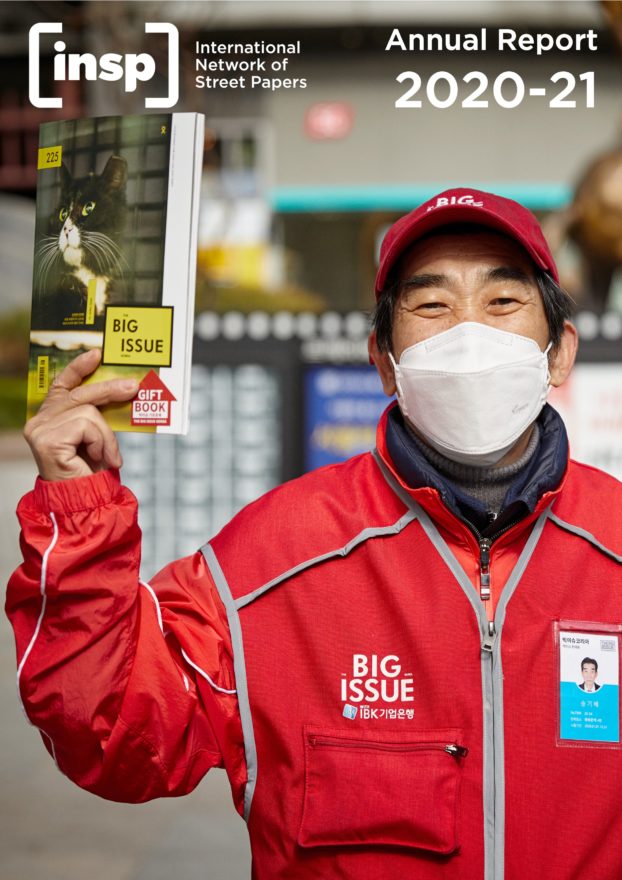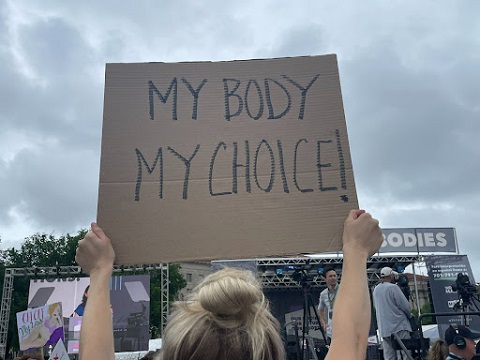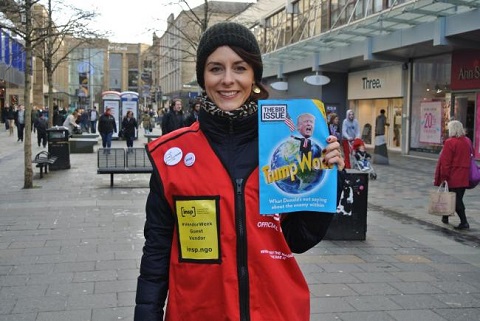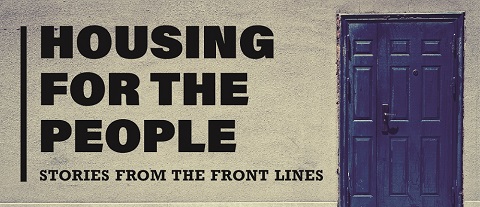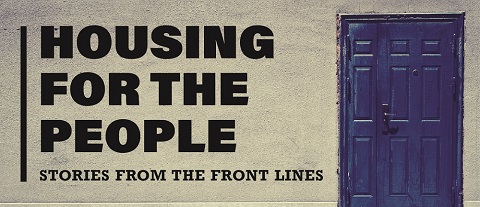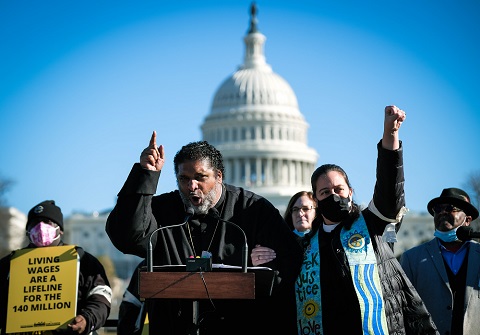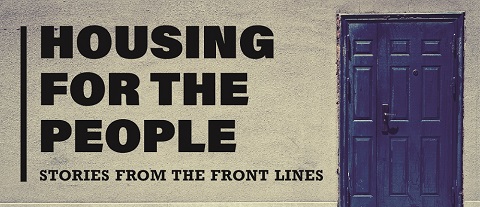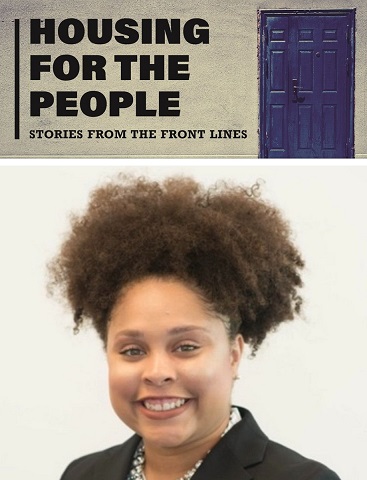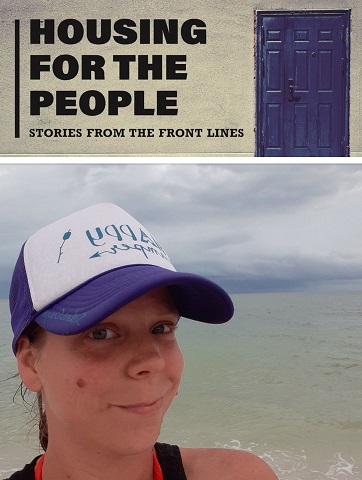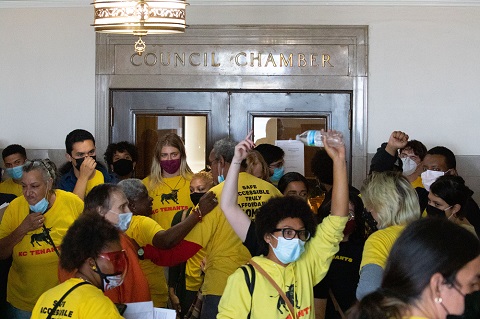Two years ago, Raven Canon was newly homeless in Colorado Springs, a city on the eastern edge of the Southern Rocky Mountains. She was sitting outside the city’s Penrose library – and she was hungry.
“I’m female, so I was just trying to keep a low profile,” she recalls. “People target you – especially if you’re female and homeless.”
Raven’s caution was well-founded, but meant she was unaware that help was close at hand. “I didn’t know the soup kitchen was a block and a half away – and I was starving,” she says. “When I found out, I was just appalled that I could sit a block and a half away and not know that was there.”

This moment of need – and the desire to stop anyone else from facing the same situation – was the spur for Raven to launch Colorado Springs’ first street paper. As a former vendor for Real Change, she recalled how the Seattle street paper had printed a calendar to inform homeless people of the services available to them.
“For me, putting the calendar on the very back page of the paper – that was the catalyst that started it all,” she says.
Shortly afterwards, the City Council passed a no-sit, no-lie ordinance (which prohibits sitting or lying on the sidewalk or in other public spaces) and Raven was more convinced than ever that the homeless community needed a voice.
“The idea came from being hungry – the desire came from wanting to fight,” she explains. “I’m forced to step up into this role that I’ve created. It’s bizarre, because until I did this we [the homeless community] had no voice here, none. The city council, the CSPD [Colorado Springs Police Department], the mayor – they walked all over us. I just got tired of it. I started stomping my feet.”
So for the last year and a half – with support from fellow members of the street paper community, including Real Change, the Denver Voice and Nashville paper The Contributor – Raven has been working to make The Springs Echo a reality. She secured backing from local activist group Coalition for Compassion and Action (CCA) – for whom Raven was their first homeless member – and from the NAACP. Like the founders of many fledgling papers before her, she also pulled in favours from friends and fellow activists.
“The idea came from being hungry – the desire came from wanting to fight.”
The first edition of the paper was printed at the turn of 2017. 3,000 copies were delivered to the very soup kitchen that had been so tantalisingly out of reach for Raven just a couple of years earlier. In the last couple of weeks, 10 vendors have been through the orientation process. They buy the paper for 50 cents and sell it for a recommended donation of $1.50.
On the first day The Springs Echo hit the streets, Raven heard that a high-ranking member of the mayor’s office had bought a copy. “So I’d say the chances are pretty high that the mayor’s read it. And for me that’s just such a personal accomplishment. The fact that the very first edition out, the very first day that I launched, someone from the mayor’s office made a point to buy it, tells me that there is a market for this. This is so workable,” she says.
Creating a new street paper is always a herculean task but Raven’s story is all the more remarkable because she achieved it whilst facing her own struggles with homelessness. Without permanent shelter, she juggles fundraising and editing duties whilst staying at friend’s houses or sleeping in a local 24 hour café.

“It’s a battle,” she admits. “I am emotionally exhausted. At times, it’s more than I can bear. I can’t go into a regular shelter setting, where I normally used to go, because I pretty much go around with a big bull’s eye on my back in the homeless community right now. I’m bringing unwanted attention on them. They don’t understand that things are getting better because I’m doing this. They’re so used to people abusing them and throwing them under the bus, that that is what they naturally expect. Until more members of the homeless community start to stand up with me, my voice has to be the loudest. Because right now, there’s no balance to the conversation.”
Support from fellow street papers has been essential to cope with the pressure. Real Change founder and INSP board member Tim Harris is always on the end of a phone to offer advice and support to Raven, whilst the Denver Voice even loaned her the money to pay the printer until she could get donations released.
“I’ve been honoured to help Raven empower herself and other homeless folks in Colorado Springs,” said Tim. “The advice I offered helped, but the main thing was to just be a phone call away. To say, ‘You’re a hero. You can do this, and it’s going to be OK.’”
“Starting and running a street paper is no mean feat and to do so whilst facing the personal challenges of homelessness is awe-inspiring.”
Denver Voice editor Sarah Harvey has been similarly impressed. “We’ve been able to help Raven troubleshoot some printing questions and have advised her a bit on her vendor programme – and I know Raven has reached out to other street papers in addition to the Denver Voice for help,” she said. “Even with that mentoring, I must say I am impressed with how quickly she was able to realise her dream and get her first issue printed. I think that drive and determination is a good indicator that she’s street paper material.”
INSP Operations Manager Zoe Greenfield said she was delighted to see the street paper community rally round The Springs Echo. “We are proud of the solidarity in the street paper network as we work together to support those who are facing homelessness and poverty,” she added.
“The whole team at INSP has been impressed by Raven’s drive and passion for this project. Starting and running a street paper is no mean feat and to do so whilst facing the personal challenges of homelessness is awe-inspiring. As we approach #VendorWeek, it’s great to celebrate a former vendor launching a new street paper to offer opportunity to those around her.”
Activism is at the heart of Raven’s ambitions for the paper – but given her continuing struggle with housing, the financial imperative that drives street papers is never far from her mind. “For me, this is all about the vendors,” she says. “If the vendors aren’t out there making money, what’s the point? We need a voice, but at the end of the day this is about getting people off the streets.”




